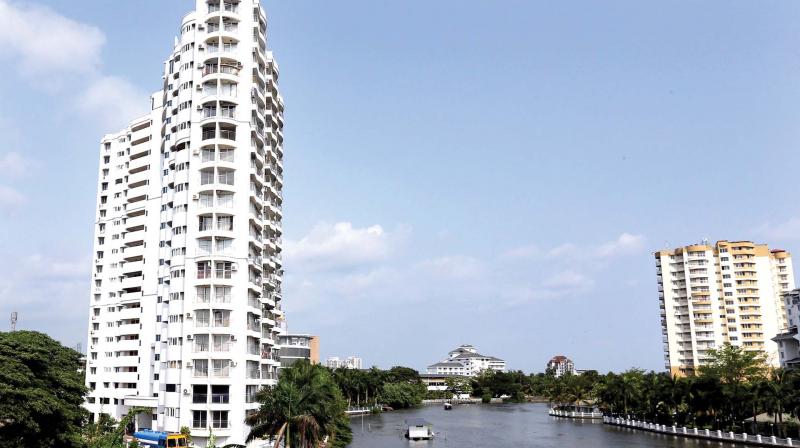Demolish the governance deficit

Kochi: The Supreme Court order for demolishing five apartment complexes having nearly 350 dwelling units with an approximate market value of Rs 500 crore in Maradu municipality near Kochi reveals the governance deficit prevailing in the chain of regulatory system.
The builders are equally guilty as they have either wilfully concealed the legal issues or ignored them while the apartment buyers have failed in showing due diligence about the property before deciding to buy it. Bankers involved in lending credit to these properties are the other party involved in this sordid affair.
The Supreme Court decision is expected to badly impact the apartment business in Kochi facing a crisis-like situation with oversupply and demand crunch.
The affected builders and apartment owners are gearing up to approach the Supreme Court with a review petition. They pin their hopes on the fact that they had received the approval of Maradu panchayat for setting up the buildings in 2006. According to Alfa Ventures, promoters of Alfa Serene, one of the five buildings facing demolition, the Maradu grama panchayat granted building permits on September 9, 2006. The panchayat stood by the decision in a case connected with the project in the High Court in 2007. The local body informed the court that 'Maradu panchayat is a 'developed area' as specified in CRZ rules and that Maradu belongs to CRZ-2 category. The building permit was granted accordingly.
The Kerala Coastal Zone Management Authority did not counter the version of the panchayat or the petitioner in the case. The KCZMA also did not insist that Alfa Ventures should take any prior permission as it was not mandatory till the new CRZ rules came into force in 2011.
The KCZMA never insisted on prior permits for any buildings near the shoreline in Cochin Corporation before 2011. Alfa Ventures completed the construction and received the numbers from the municipality in July 2012. Maradu panchayat was elevated to a municipality in 2010. The High Court disposed of the petition on the buildings in September 2012.
According to the promoters of the project, the municipality filed a writ appeal before the High Court in December 2012 alleging violation of CRZ norms after the building was completed, numbered by the municipality and 73 owners occupied the apartments.
A division bench of the High Court dismissed the appeal in 2015 and also highlighted the failure on the part of the local body to observe some kind of standard principles in such policy matters. "We must record our anguish about the manner in which the appellants have conducted themselves.
They were merrily issuing permits and allowed the builders to proceed with the constructions. After substantial progress was made, the municipality suddenly became wiser on receipt of a letter from the government.
Therefore, it is a situation which has been created by the municipality itself and the entire blame for this should be accepted by them," it said.
The division bench also chastised the local body for its failure to identify and take action against the officials responsible for issuing the permits, if the same was in violation of the rules.
The Supreme Court verdict, however, has overruled the High Court verdicts on the matter putting the builders and the apartment owners in a quandary. They have no choice other than to approach the apex court to salvage their property and reputation.

